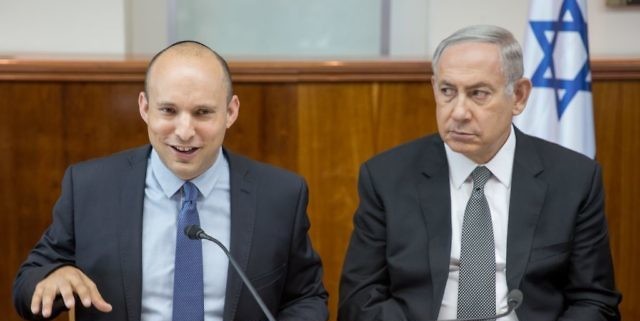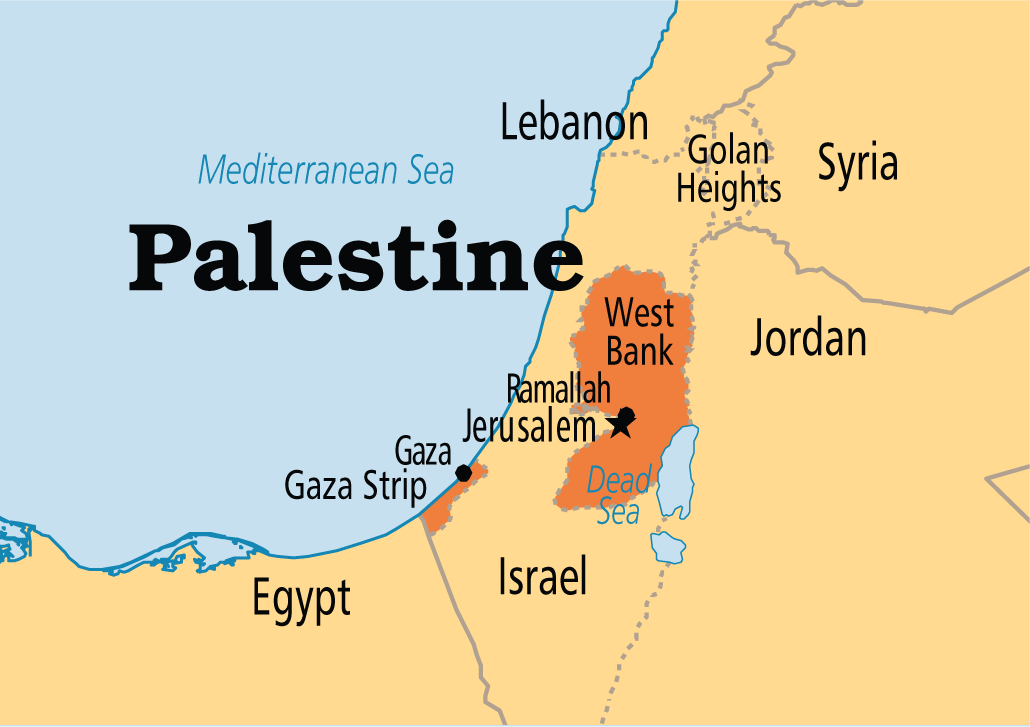Understanding Israel’s response
October 14, 2017 | Expert Insights

Israeli Prime Minister Benjamin Netanyahu has condemned the reconciliation deal signed between the Hamas and the Fatahs in Palestine. However, the reaction from Israel has been decided muted.
What’s the reason?
Background
Fatah is a Palestinian nationalist political party. It was founded in 1959 as a political movement. The group became a political party in 1965. It is headquartered in West Bank. One of its founders was Yasser Arafat, who served as the President of the Palestinian National Authority (PNA) from 1994 to 2004.
Hamas is a Palestinian Sunni-Islamic fundamentalist organization that was formed in 1987. It was founded shortly after the First Intifada. It espouses strong Palestinian nationalism as well as Sunni Islam.
Tensions between the Hamas and Fatahs began to grow in 2005 shortly after the death of Yasser Arafat. In 2006, Hamas won a strong legislative victory and the two factions clashed over the issue of border crossing. Violent clashes broke out in the region and this resulted in the split of the Palestinian Authority in 2007. Estimates note that at least 98 civilians died in the violence.
As a result of this civil war, Hamas were able to push Fatah forces out of the Gaza Strip in the region. They took over the de-facto governance of the area as well. The Gaza Strip, which is home to nearly 1.5 million Palestinians, is a narrow strip of land between Israel and Egypt. In 1948, the Strip came under Egypt’s control after the Arab-Israeli war. It was occupied by Israel in 1967 when the country engaged in military conflict once again with Arab nations.
The majority of residents in the Gaza Strip are refugees. The region is often marred by violence. For over a decade, Israel has blocked the entry and exit from Gaza. This existed even before 2007 but measures for the blockade were increased. This has resulted in shortage of goods entering the region for the residents. The economy has been significantly hit as Israel has allowed only basic humanitarian needs to enter the area. Israel held Hamas responsible for all attacks emanating from the Gaza Strip, and has carried out three major military campaigns in Gaza. Additionally, Israel, along with the US, UK and the EU has designated the Hamas (especially its military wing) as a terrorist organization.
In 2014, Hamas and Fatahs conducted reconciliation talks but the dialogue broke down over differences from both sides.
For a historic overview of Israel’s role in the Middle East and its ties to Palestine, click here.
Analysis

Hamas’ stronghold on the region has weakened in 2017. That’s because the Palestinian Authority President, Mahmoud Abbas continued to mount pressure on the group. He reduced the region’s power supply and reduced salaries of some employees living in Gaza. There were also restrictions placed on the supply of water and medical supplies. Thus, with little choice, the Hamas agreed to begin reconciliation talks with the Fatah government.
On October 12th, 2017, negotiators from rival Hamas and Fatah factions signed a reconciliation deal. The Egyptian government confirmed that from December 1st 2017, the Palestinian Authority would resume full control over the Gaza Strip. However, the Hamas was not prepared to disarm.
The last time the Palestinian Authority held reconciliation talks with the Fatah organization (in 2014), Israel vociferously condemned it. At the time, Israeli Prime Minister Benjamin Netanyahu repeatedly urged Palestinian Authority President Mahmoud Abbas of Fatah to dissolve the unity government. This time around, Netanyahu has continued being critical of the development and wrote, “Israel opposes any reconciliation in which the terrorist organization Hamas does not disarm and end its war to destroy Israel. Reconciliation between Fatah and Hamas makes peace much harder to achieve.” Intelligence Minister Yisrael Katz (Likud) also condemned the reconciliation and said that this pact was “but a convenient cover for Hamas to continue its existence and activity as a terror organization while relinquishing civilian responsibility for the Gaza Strip.”
However, on the whole, the reaction from the Israeli government has been decidedly muted. The fact that the Hamas have made concessions to the PA government shows a growing weakness in the organization. Another reason why Israel has stayed relatively quiet is due to the stance taken by the US administration. The White House has urged reconciliation and has asked all factions to work towards ending the humanitarian crisis in the Gaza strip. Israel will also not want to challenge or antagonize Egypt that was a driving force behind the peace deal.
Likud MK Yehudah Glick was the only Israeli official said, “The fact that Hamas in Gaza pushed for the deal shows they’re weak — very good. The fact that the strong man in the region is Sissi and not [Syrian President Bashar] Assad or [Turkish President Recep Tayyip] Erdogan — pretty good. The fact that in Judea and Samaria [the West Bank] we are the ones determining what happens and not some other international player — pretty good.”
Assessment
Our assessment is that Israel recognizes that the power wielded by the Hamas in the region is waning. The nation is also not willing to challenge the US or Egypt in the process. Most importantly, it will not have to the address the humanitarian crisis in Gaza. Netanyahu has established relatively friendly relations with Egyptian President Abdel Fattah el-Sisi. This development highlights the changing dynamics in Middle East.








Comments